October 8, 2024
The 2024 Guide to EPR
The rules around packaging are changing fast. New laws called Extended Producer Responsibility (EPR) policies are being introduced across the U.S., aiming to reduce waste and make recycling easier. If product packaging is a part of your business, it’s important to know what these laws mean—we break it down in this simple guide.
What is EPR?
Extended Producer Responsibility (EPR) is a type of law that makes companies responsible for their packaging even after it’s been used. This means companies will be required to help with recycling and waste management. States like California, Maine, and Oregon have already started using these laws, and more states are likely to follow.
Why is EPR Important?
The need for Extended Producer Responsibility (EPR) policies is driven by several key factors, with the most pressing being the lack of sufficient recycling infrastructure in the U.S. Despite efforts over the years, many areas still lack the facilities or systems needed to properly manage and recycle the vast amounts of packaging waste that’s generated daily. This has led to significant environmental challenges. The fastest way to build up the recycling infrastructure is with the support of companies who are producing and using the packaging for their products.
How Do EPR Policies Affect the Packaging Industry?
EPR policies bring new challenges to the business landscape. Companies may face increasing costs to meet recycling targets and comply with the laws. However, these policies also push the industry to create better, more readily recyclable packaging options.
Which States Have EPR Laws?
Each state with EPR laws has its own timeline and requirements, making it crucial for producers to stay informed and prepared for the specific regulations in their state. Compliance involves joining relevant organizations, reporting data, and paying associated fees, all of which are being phased in gradually.
By understanding these timelines and requirements, companies can better navigate the complex landscape of EPR regulations and ensure they meet all necessary obligations as they come into effect.
| State | Key Dates & Phases | Details |
| Maine | 2021: Law enacted 2024-2025: Rule adoption 2026: Producer payments begin |
Maine’s EPR law requires producers to join a Stewardship Organization (SO) that manages the recycling process. Rules are being finalized, with major implementation steps expected between 2025 and 2026. |
| Oregon | 2021: Law enacted 2024: Producer registration begins 2025: Fee obligations begin |
Oregon’s EPR law mandates producers to join a Producer Responsibility Organization (PRO). The rules include detailed reporting and fee schedules that start taking effect in 2024, with full implementation by mid-2025. |
| Colorado | 2022: Law enacted 2024: Producer registration 2025: Fee schedule released |
Colorado’s EPR law, overseen by the Colorado Department of Public Health and Environment (CDPHE), requires producers to register with a PRO by 2024 and follow a fee structure starting in 2025. |
| California | 2022: Law enacted 2024: Informal rulemaking begins 2026: Statutory fee obligations begin |
California’s EPR law is aimed at achieving a 65% recycling rate by 2032. Producers must comply with reporting and payment obligations beginning in 2026. The law also focuses on making packaging 100% recyclable or compostable. |
| Minnesota | 2024: Law enacted 2025: PRO selection 2026: Producer registration begins |
Minnesota’s EPR law requires producers to join a PRO by 2026. The law aims to reduce packaging waste and improve recycling. Full implementation is expected to unfold over the next few years, starting in 2025. |
| New Jersey | 2022: Law enacted 2024: Compliance deadlines begin |
New Jersey’s EPR law includes strict recycled-content mandates for various packaging types, including rigid plastic and glass containers. The law is currently being phased in, with regulations still being finalized |
| Washington | 2021: Law enacted 2023: Implementation begins |
Washington’s EPR law includes recycled-content mandates and is expanding its regulations to cover additional packaging types. The law is already in the implementation phase |
States With EPR on the Horizon
While only seven states currently have EPR laws, many are following suit. According to the National Caucus of Environmental Legislators, several U.S. states including Minnesota, New York, and Tennessee are in the process of introducing or debating Extended Producer Responsibility (EPR) laws.
States that Have EPR Bills Introduced
- Minnesota
- New York
- Tennessee
- Illinois
- North Carolina
- Rhode Island
- New Hampshire
States Working to Introduce EPR
- Hawaii
- Massachusetts
The Future of EPR: How to Stay Ahead of the Curve
As more states in the U.S. adopt EPR policies, the regulatory landscape will continue to evolve. Packaging companies must be proactive in understanding these changes and preparing for what’s to come. This involves not only staying informed about current laws but also anticipating future regulations and trends.
To navigate this complex environment, it’s essential to partner with a packaging company that has a deep understanding of EPR laws and can provide the guidance and support needed to remain compliant and competitive. Sev-Rend’s team is uniquely positioned to help businesses navigate the intricacies of EPR policies. With our expertise in sustainable packaging solutions, we can help you get ahead of regulatory changes and stay compliant in every state.
Have more questions about EPR? Connect with a sustainable packaging expert.

